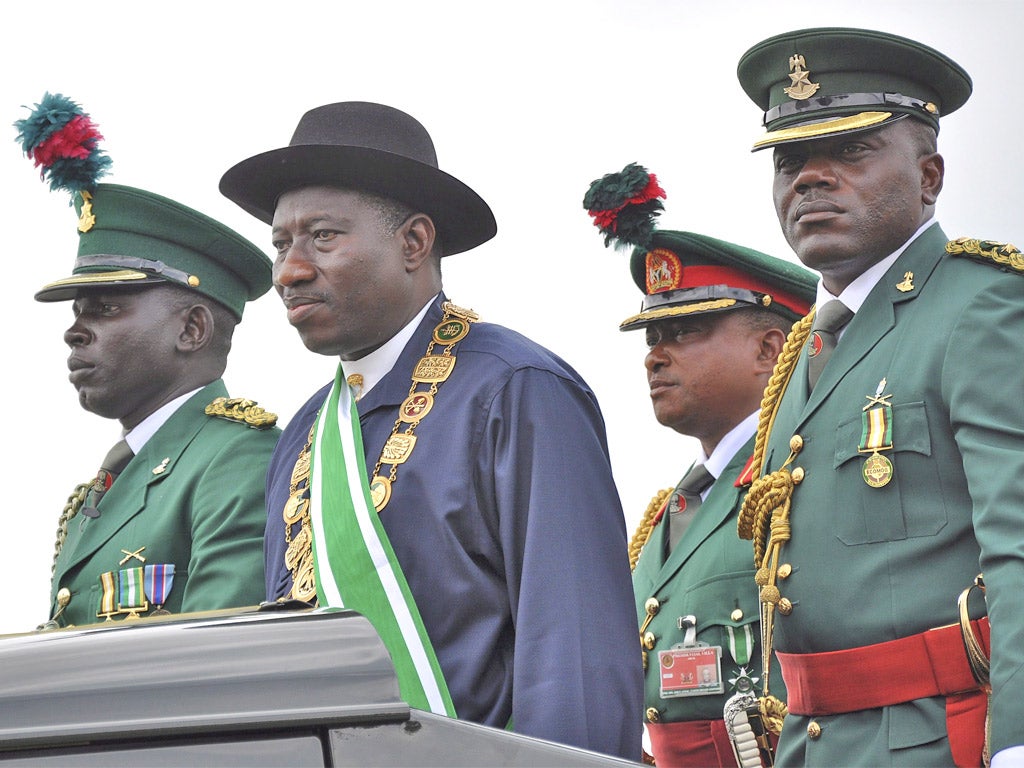Is Nigeria's story heading for the same old ending?

By Daniel Howden
There were some unlikely guest speakers at Nigerian President Goodluck Jonathan's Independence Day ceremony last year. Among the assorted ministers, governors, generals and praise singers for the recently elected leader were Michela Wrong and Richard Dowden, two writers both renowned as stern critics of dysfunctional government in Africa's giant. They were as surprised as the rest of the hall that Westerners had been invited to lecture Nigeria's elite on their failures. And neither was short of material.
Mr Dowden, director of the Royal Africa Society, reminded the audience that oil had been a curse to Nigeria since its discovery in the 1950s, comparing the country's relationship with crude to that of King Midas' with gold. Ms Wrong, in her own words, "castigated" the hall over corruption. When they had finished, a government official predictably dismissed the pair for their "distorted view" of Nigeria and turned to her boss, expecting him to concur. But he didn't. "She was then mildly ticked off by Jonathan," says Ms Wrong.
This was the Goodluck Jonathan who ignited hopes that Africa's most populous country might be changing direction after he won a flawed but improved election. The appointment of an economics team that included World Bank luminary Ngozi Okonjo-Iweala and respected banking reformer Sanusi Lamido Aminu Sanusi spurred hopes that sub-Saharan Africa's largest oil producer and the continent's second biggest economy might be about to make good on its vast potential.
And yet four months on, Nigeria appears closer to civil war than an economic breakthrough. Boko Haram – the Islamist insurgent group – has taken its death toll to 935 in the past two years, according to Human Rights Watch. Its most recent attacks in the northern city of Kano last Friday were the group's largest yet, claiming at least 186 lives.
Adding to the impression of a nation under siege has been a wave of mass strikes since the new year in response to the removal of fuel subsidies, which might seem innocuous to outsiders but which for many Nigerians represented the withdrawal of the only government benefit they received.
Nigeria, like many of its dysfunctional counterparts such as Gadaffi's Libya, Mubarak's Egypt and Bashir's Sudan, used price controls on fuel or food to dampen public unrest at the absence of economic progress. While Nigerians got cheap fuel, a cabal of politically connected fuel importers looted the subsidy system of billions of dollars of public money.
The argument for the withdrawal of the subsidy, which cost the government $7.67bn last year, was clear and has been backed by development economists such as Paul Collier at Oxford's Centre for the Study of African Economies. He argues that the subsidies represent a cash transfer from Nigeria's poor majority to its wealthier consumers and fuel profiteers and that the money would be better spent on social programmes.
There's little doubt that the removal of the subsidy was mishandled. The announcement caught people by surprise and petrol doubled in price on New Year's Day with a devastating effect on inflation and the poor. In both crises, the President has been accused of dithering. After Boko Haram blew people up in their churches on Christmas Day he took a week to visit the scene. On the fuel issue, he appeared to hide from public view before performing a U-turn and buying off opposition.
The Christian whose rise to power from the restive oil-producing Niger Delta was credited with soothing tensions there now finds himself under attack from all sides.
Join our commenting forum
Join thought-provoking conversations, follow other Independent readers and see their replies
Comments
Bookmark popover
Removed from bookmarks